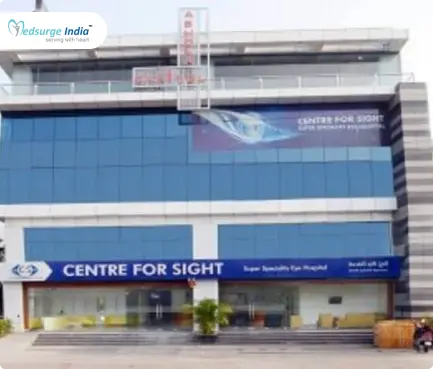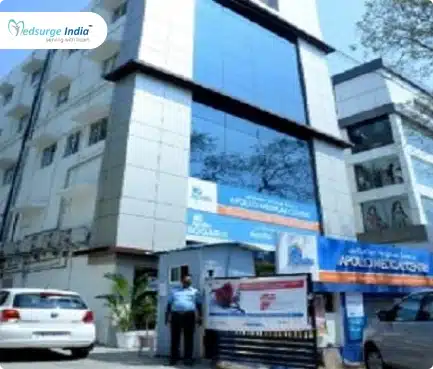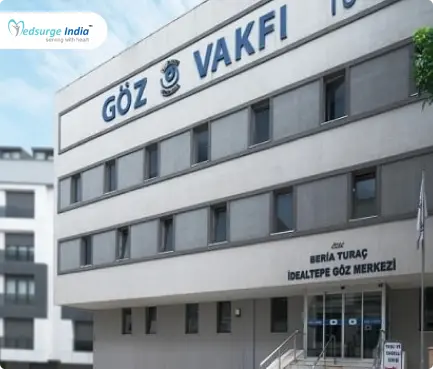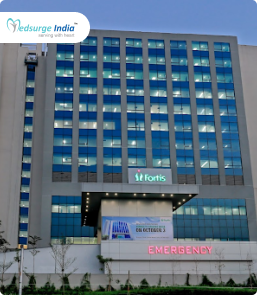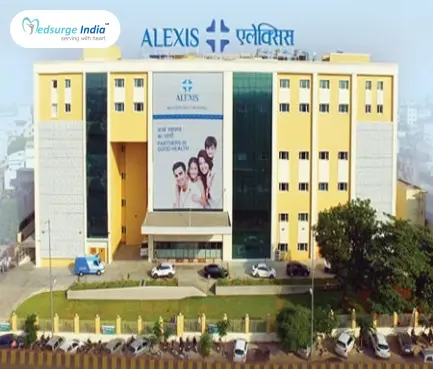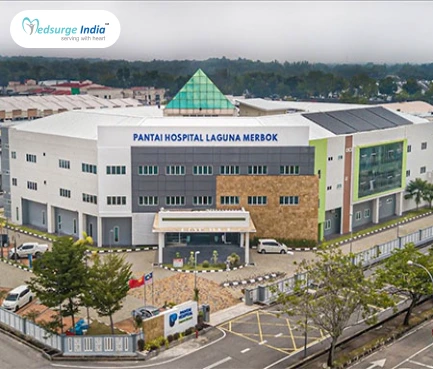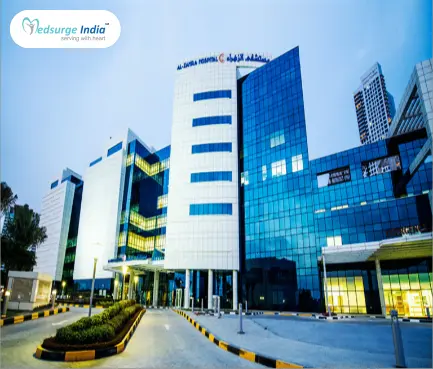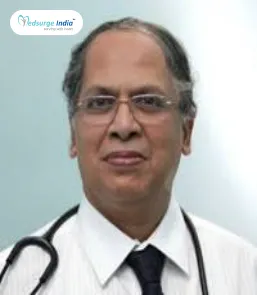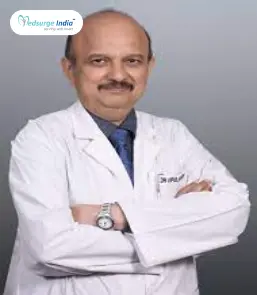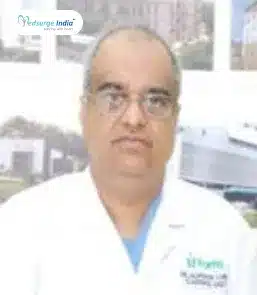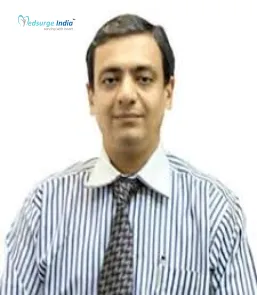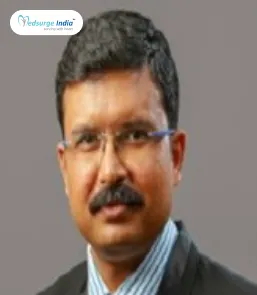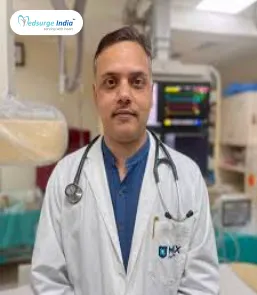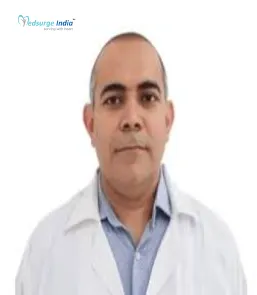
The Heart’s pumping motion is responsible for delivering nutrient- and oxygen-rich blood to each of the body’s cells. The body cannot operate correctly if the cells are not properly nourished.
The term “heart failure” is a terrifying one. It doesn’t mean the heart has “failed” or stopped working. It indicates that the heart is really not pumping as efficiently as it should be.
If you have heart failure, taking care of yourself and maintaining a healthy lifestyle will improve your health and quality of life. It’s critical to understand heart failure, how to maintain a healthy balance, and when to seek medical help. In the treatment of Congestive Heart Failure in India specialized drugs are prescribed on the basis of initial symptoms.
Heart failure is rarely curable, but with the correct therapy, patients can often live happy and productive lives.
What Is Congestive Heart Failure?
When the heart muscle does not pump blood as well as it should, it causes heart failure, also known as “Congestive Heart Failure”. When this happens, blood and fluid can back up in the lungs, causing shortness of breath.
CHF arises when your ventricles are unable to pump enough blood volume to the body. Blood and other body fluids can back up in the following ways:
- Lungs
- Liver
- Abdomen
- Lower Body
A physical exam and heart tests will be used by your doctor to identify heart failure. Treatment for Congestive Heart Failure includes addressing the underlying cause of your heart failure, as well as medications, and, if other therapies fail, heart transplantation is preferred.
What Are The Types of Heart Failure?
The most prevalent type of CHF is left-sided CHF. When your left ventricle fails to adequately pump blood out to your body, it causes this condition.
Fluid might build up in your lungs as the illness worsens, making breathing difficult.
Left-sided heart failure can be divided into two categories:
- Systolic Heart Failure
- Diastolic Heart Failure
When your right ventricle has trouble pumping blood to your lungs, you have right-sided CHF. Blood vessels become clogged, causing fluid retention in the lower limbs, abdomen, and other important organs.
It is possible to have both left and right CHF at the same time. When left untreated, the disease usually begins on the left side and progresses to the right.
Congestive Heart Failure Treatment Cost in India
The average cost of Congestive Heart Failure Treatment in India can range from between 4200 USD to 12000 USD. It typically includes necessary preoperative tests, and the surgery itself. However, please note that accommodation and transfers are not included in this cost.
Types of Treatment For Congestive Heart Failure Treatment in India
| Treatment | Starting Price |
| Coronary Bypass Surgery | 4,500 USD |
| Heart valve Repair or Replacement | 4,500 USD |
| Implantable Cardioverter-Defibrillators (ICDs) | 11,000 USD |
| Cardiac Resynchronization Therapy (CRT) | 13,000 USD |
| Heart Transplant | 60,000 USD |
Cost of Congestive Heart Failure Treatment in Different Cities in India
| Cities | Starting Price |
| Delhi | USD 4200 |
| Gurgaon | USD 4400 |
| Noida | USD 4200 |
| Mumbai | USD 4500 |
| Hyderabad | USD 4200 |
| Chennai | USD 4300 |
| Kolkata | USD 4200 |
| Bangalore | USD 4500 |
Note: Keep in mind that the aforementioned cost provided is solely for the treatment. The overall cost of Congestive Heart Failure Treatment in India will be determined based on several factors.
Factors That Can Affect Congestive Heart Failure Treatment Cost in India
Various factors can affect the cost of Congestive Heart Failure Treatment in India. Your budget is greatly impacted by numerous elements that fail under pre and post-treatment costs. Below are the various factors that can affect the cost of Congestive Heart Failure Treatment in India.
- Medication costs: Certain medicines can influence the overall cost of Congestive Heart Failure Treatment.
- Patient Condition: The complexity of the disease along with the patient’s overall health can affect the duration of treatment, impacting the cost.
- Duration of treatment: Longer treatment courses involving multiple visits can lead to higher cumulative costs.
- Geographical location: Cost can vary widely depending on the region in India.
- Hospitalization expenses: The length of hospital stay and the level of nursing care required by the patient can add to the treatment expenses.
- Government policies and subsidies: Government healthcare schemes and subsidies can reduce out-of-pocket expenses for patients, affecting the affordability of Congestive Heart Failure Treatment.
- Medical tourism packages: Curated packages for international patients can include various services at a bundled cost, influencing the overall expense of treatment in India.
- Hospital reputation and infrastructure: Prestigious hospitals with state-of-the-art facilities may charge more for their services.
- The expertise and experience of medical professionals: Cardiac surgeons with extensive experience and recognition often command higher fees, contributing to the treatment cost.
- The type and frequency of diagnostic procedures: Regular monitoring with advanced imaging and laboratory tests can increase treatment costs due to the high price of these diagnostic methods.
- The choice of treatment modality: Opting for newer or more advanced treatment options or precision medicine can be more expensive than traditional approaches.
Congestive Heart Failure Treatment Cost in India offers exceptional medical services and facilities to patients who come for treatment in India also their facilities rival those of well-known healthcare centers worldwide. Accommodation, meals, and transportation expenses are also covered. Furthermore, a foreign patient can save up to 30-40% of the Congestive Heart Failure cost in India when compared to their native countries.
What Are the 4 Stages of Congestive Heart Failure?
The letters A to D are used in this stage-based classification system, which includes a group of those who are at risk of developing heart failure. This classification system is used by doctors to detect risk factors and initiate more aggressive therapy early to help avoid or delay heart failure:
- Stage A: There are a number of risk factors for heart failure, but there are no symptoms or indicators.
- Stage B: Heart disease is present, but there are no signs or symptoms of heart failure.
- Stage C: Heart disease and indications or symptoms of heart failure are present.
- Stage D: Advanced heart failure, necessitates specific care.
What Are the Symptoms of Congestive Heart Failure?
Heart failure can be long-term (chronic) or develop quickly (acute). As stated, early indications of congestive heart failure may be difficult to detect. There are some early warning indicators to talk to your doctor about.
The following are some of the signs and symptoms of congestive heart failure:
- Shortness of Breath
- Fatigue and Weakness
- Swelling in the legs, ankles, and Feets
- Irregular heartbeat
- Limited capacity for physical activity
- Regular Coughing or Wheezing
- Swelling in the Abdomen Area
- An over-accumulation of fluid in body tissues such as the ankles, foot, legs, and belly
- Rapid Weight Gain
- Lack of Appetite and Nausea
- Concentration problems or a lack of alertness
- Chest pain will occur if a heart attack is the cause of heart failure
What Are the Causes of Heart Failure?
Heart failure generally occurs after the heart has been injured or weakened by other disorders. Heart failure, on the other hand, can develop if the heart gets excessively rigid.
Other health issues that directly impact your cardiovascular system are the causes of Congestive Heart Failure. This is why, in order to lower your risk of heart problems, you should have annual checks, including such:
- Hypertension (High Blood Pressure)
- Coronary Artery Disease
- Conditions of Valves
- Kidney Disease
Other Affecting Conditions
While heart disease can cause CHF, there are a number of other seemingly unrelated disorders that can raise your risk:
- Obesity
- Diabetes
- Thyroid Disease
- Arrhythmia
- Certain Chemotherapy Drugs
- Severe Infections and Allergic Reactions
Although heart failure could be the cause of these symptoms, there are a number of other possibilities, including potentially fatal heart and lung problems. Make no attempt to diagnose oneself.
Doctors in the emergency room will attempt to stabilize your health while determining if your symptoms are caused by heart failure or something else.
How Is Congestive Heart Failure Diagnosed?
- Your doctor may recommend you to a cardiac expert, or cardiologist if you disclose your symptoms to them.
- A physical exam will be performed by the cardiologist, which will include listening to your heart using a stethoscope for irregular cardiac rhythms.
- A cardiologist may conduct various diagnostic tests to examine your heart’s valves, blood arteries, and chambers to confirm an original diagnosis.
- There are a variety of tests used to diagnose congestive heart failure. Because these tests assess different factors, your doctor may suggest a combination of them to provide a complete picture of your present health:
- Blood Tests
- Chest X-Ray
- Electrocardiogram
- Echocardiogram
- Stress Tests
- Cardiac Catheterization
- MRI (Magnetic Resonance Imaging)
The results of heart failure tests help doctors in understanding the cause of any signs and symptoms as well as designing a treatment strategy. Doctors can use one of two classification systems to select the appropriate treatment for congestive heart failure.
You might be interested to know about – Heart Bypass Surgery | CABG
Get Free Cost Estimation
Procedure
How Congestive Heart Failure is Treated?
Damage to the pumping activity of the heart is not always reversible. Treatments, on the other hand, can greatly improve one’s quality of life by keeping heart failure under control and alleviating many of the symptoms.
Doctors also concentrate on addressing the underlying causes of heart failure. The burden on the heart will be reduced as a result. The doctor, who could be a cardiologist, would explain the treatment choices and provide suggestions based on the individual’s situation.
Doctors can occasionally treat the underlying cause of heart failure. Heart failure can be reversed by mending a heart valve or managing a fast heartbeat, for example. However, for the majority of patients, treatment of congestive heart failure in India is done with a combination of drugs and, in some cases, the use of devices that assist the heartbeat and contract effectively:
Medication
Heart failure is usually treated with a combination of drugs. You might take one or more drugs, depending on your symptoms, such as:
- Angiotensin-converting enzyme (ACE) inhibitors
- Beta blockers
- Diuretics
- Aldosterone antagonists
- Positive inotropes
- Digoxin (Lanoxin)
- Hydralazine and isosorbide dinitrate (BiDil)
- Vericiguat (Verquvo)
Surgeries
To cure the condition that caused heart failure, surgery or other treatments to implant cardiac devices may be advised. The following surgeries or other procedures may be used to treat heart failure:
- Coronary bypass surgery
- Heart valve repair or replacement
- Implantable cardioverter-defibrillators (ICDs)
- Cardiac resynchronization therapy (CRT)
- Heart transplant
Suggestions
Heart failure may limit your activities with the correct care and medication, but many adults still enjoy life. The state of your heart muscle, your symptoms, and how well you respond to and follow your treatment plan all influence how well you feel. This includes taking care of yourself (taking medications, staying active, eating a low-sodium diet, keeping track of and reporting new or worsening symptoms to your healthcare professional), and leading a healthy lifestyle (regular follow-up visits with your healthcare provider, yearly flu shot).
Know More –
Best Cardiologists in India
- Dr. T. S. Kler
- Dr. Vivek Jawali
- Dr. Robert Coelho
- Dr. Ajay Kaul
- Dr. Sandeep Attawar
- Dr. Murali Manohar
- Dr. Murugu Sundara Pandiyan
- Dr. Gobu
- Dr. Y K Mishra
- Dr. K.K.Talwar
Top Cardiology Hospitals in India
The Most Important Frequently Asked Questions
Q: Why Does Your Stomach Swell When You Have Congestive Heart Failure?
A: Fluid build-up (congestion) in the body can cause swelling or pain in the upper abdomen (stomach area), which is a sign of developing heart failure. The pain is caused by fluid retention and congestion in the liver and intestines.
Q: Do You Lose Weight With Heart Failure?
A: Heart disease causes cardiac cachexia, which is accidental extreme weight loss. It’s possible that the weight loss is life-threatening. It is possible for patients with significant heart failure to develop this condition. Some people lose muscle mass despite having a strong appetite and a high calorie intake.
Q: What Happens to Your Body When You Have Heart Failure?
A: When the heart muscle does not pump blood as well as it should, heart failure ensues. Blood commonly backs up, causing fluid to build up in the lungs and legs (congestion). Shortness of breath and swelling of the legs and feet might result from the fluid buildup. The skin may seem blue due to a lack of blood flow (cyanotic).
Q: Why Does Heart Failure Cause Increased Urination at Night?
A: During ambulation, patients with congestive heart failure have a lower renal plasma flow and a higher filtration percentage. This is linked to a build-up of sodium in the body. Renal hemodynamics and sodium excretion improve with nighttime recumbency, culminating in nocturia.
Q: Is Heart Failure a Death Sentence?
A: Heart failure, despite its severity, is not a death sentence, and treatment options are today more advanced than ever. Blood and fluid may back up into the lungs (congestive heart failure), and some sections of the body may not receive enough oxygen-rich blood to function normally.
Top Hospitals for Congestive Heart Failure Treatment in India
Top Doctors for Cardiology And Cardiac Surgery
Dr. Kavya Mallikarjun
Consultant
Experience: 15 years of experience
Manipal Hospital (Old Airport Road) Bangalore
Bangalore, India
Dr. Vivek Jawali
Chairman , DNB, MCh, MS, MBBS
Experience: 40 years of experience
Bangalore (Bannerghatta Road)
Dr. Vipul Narain Roy
Consultant
Experience: 30 years of experience
Indraprastha Apollo Hospital New Delhi
New Delhi, India
Dr. Ashutosh Marwah
Additional Director
Experience: 23 years of experience
Fortis Escorts Heart Institute, New Delhi
New Delhi, India
Dr. Siddhartha Mani
Senior Consultant
Experience: 16+ years of experience
NH Rabindranath Tagore International Institute of Cardiac Sciences, Kolkata
Kolkata, India
Dr. Badri Narayana
Consultant
Experience: 38 years of experience
Apollo Hospitals, Jubilee Hills Hyderabad
Hyderabad, India
Dr. Durga Devi
Consultant
Experience: 10 years of experience
Prashanth Multi Speciality Hospital Chennai
Chennai, India
Dr. Nishant Tyagi
Associate Director
Experience: 19 years of experience
Max Super Speciality Hospital, Patparganj, New Delhi
New Delhi, India
Dr. Perwaiz Alam
Experience: 20+ years of experience
Brahmananda Narayana Multispeciality Hospital, Jamshedpur
Jamshedpur, India
Dr. Roopa R
Consultant
Experience: 21 years of experience
Manipal Hospital (Old Airport Road) Bangalore
Bangalore, India
Dr. Kamlesh Jain
Consultant
Experience: 11 years of experience
Reliance Hospital, Navi Mumbai
Mumbai, India

